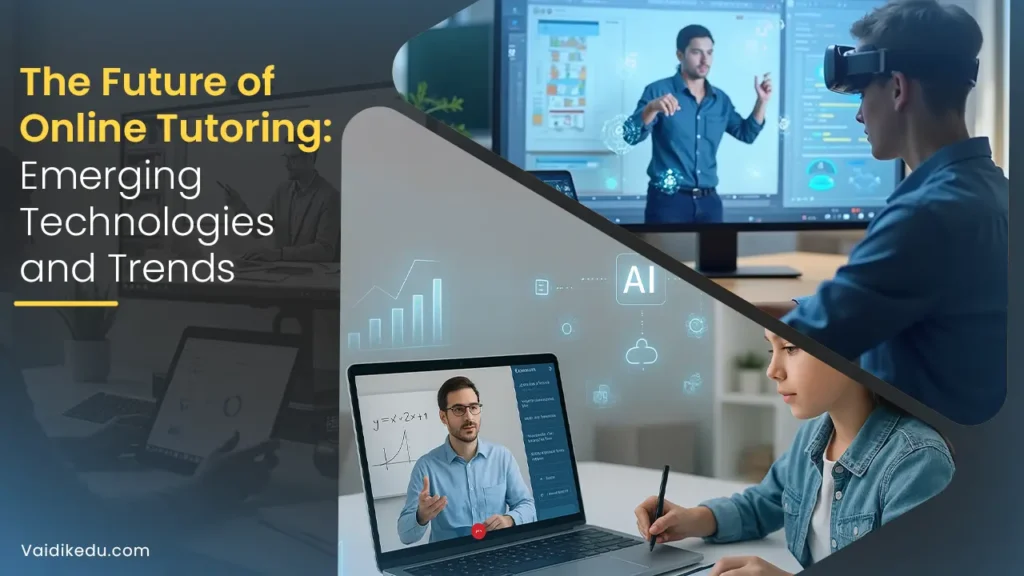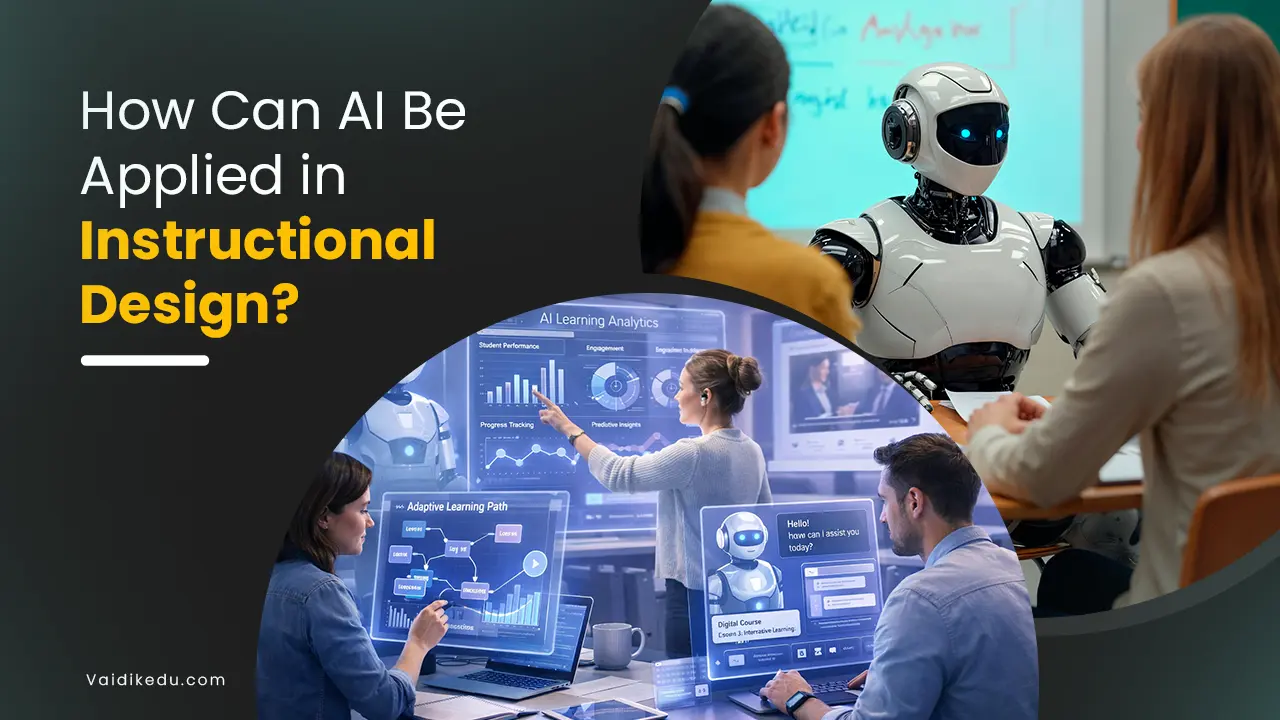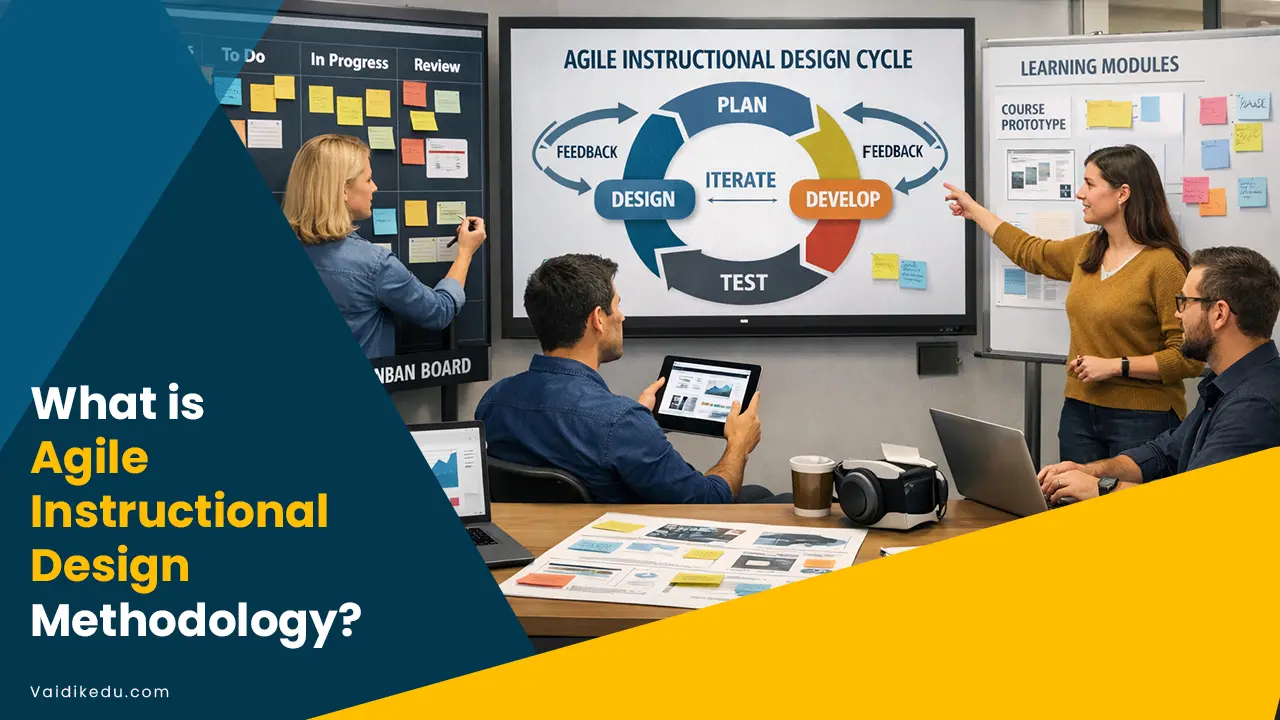As this world increasingly embraces new technologies, the teaching sectors are also experiencing some modification. Online tutoring, which was once believed to be a negligible expansion to standard educational techniques, has currently carried on a crucial role in current education settings.
The advancement of innovative technologies and the latest trends is making online tutoring better and available to a more expansive range of students, improving employment through interactive content, and enhancing the overall effectiveness of education experiences.
These upgrades enclose the usage of artificial intelligence to personalize learning, and the integration of virtual resources to accommodate diverse learning techniques and media that promote real-time communication between teachers and learners.
Rise in Online Teaching
The insistence on online tutoring has rushed in recent years, driven by elements such as the global pandemic, rising internet usage, and the necessity for personalized learning experiences.
Learners and parents are acknowledging the advantages of flexible, unique instruction that can be designed to individual needs. As this development continues, technology recreates a key role in redefining how tutoring is provided.
Arising Technologies in Online Guidance
1. Artificial Intelligence (AI): AI is dramatically altering online tutoring by promoting unique understanding experiences. AI systems examine student performance and adjust the content in real time. For example, an AI-operated outlet can determine a trainee’s shortcomings in mathematics and deliver targeted exercises to manage those openings.
2. Virtual Reality (VR) And Augmented Reality (AR): VR and AR technologies are making online tutoring more immersive and attractive. Learners can analyze virtual settings, complete science investigations, or train language skills in simulated actual world strategies. These devices bring conceptual ideas to life, improving performance and memory.
3. Adding Games: By incorporating game-like features such as points, badges, and leaderboards, online teaching platforms increase learner’s motivation and participation. The elements of a game transform learning into a satisfying and rewarding experience.
4. Data Analytics: Data analytics tools help teachers track student gain and determine directions. By examining performance metrics, educators can create informed decisions to improve teaching techniques and deliver targeted support.
5. Blockchain Technology: Blockchain refines the security and clarity of online tutoring platforms. It maintains student records, credentials, and payments safely. Authorized users can easily access such knowledge.
6. Natural Language Processing (NLP): NLP-powered chatbots and virtual associates are helping students beyond live tutoring sessions. These agencies answer questions, deliver explanations, and even simulate conversations in foreign languages.
Directions For Shaping The Future of Online Tutoring
1. Hybrid Learning Models: The combination of online and offline education methods is developing a balanced strategy for education. Such combined models blend the flexibility of online tutoring with the benefits of face-to-face interaction, presenting the best of both worlds.
2. Multinational Accessibility: Online tutoring is shattering up the geographical barriers, and uniting students with talented educators from around the world. This trend is encouraging culturally diverse learning and delivering possibilities for scholars in underserved areas.
3. Anchor To Soft Skills: Further academics, and online tutoring media platforms are progressively accentuating soft skills such as communication, cooperation, and critical thinking. These skills are necessary for success in the modern crew.
4. Subscription-Based Ideals: Many platforms currently offer subscription-based pricing. This will allow students to access resources and teaching sessions without limitations. This pricing model is cost-effective and provides flexible learning opportunities.
5. Compact E-Learning: Short, attentive classes are achieving popularity as students desire quick and efficient forms to learn specific subjects. Microlearning affiliates with current attention spans and active schedules.
6. Sustainability And Inclusivity: The future of online tutoring centers around environmentally pleasant practices and designs that welcome all students.
Educational platforms are vigorously functioning to reduce their carbon imprint while even building components that provide credentials for students with disabilities.
This dedication to sustainability and inclusion seeks to create a more honest and confirming learning atmosphere for everyone.
Implications For Students And Educators
For Students: Emerging technologies are making online tutoring more personalized, interactive, and effective. Learners can access high-quality teaching anytime, anywhere, and obtain unique support to meet their special learning goals.
For Educators: Tutors are gaining access to advanced tools that enhance their teaching capabilities. New technologies like AI insights and virtual reality (VR) simulations help educators create entertaining and adequate lessons.
For Institutions: Educational institutions leverage online tutoring to expand their reach and improve student outcomes. They are using new technologies to stay competitive in a fast-changing endeavor.
Conclusion
The future of online tutoring is filled with potential and excitement. Innovative technologies and trends continuously transform the educational landscape, creating new opportunities for learners everywhere.
For instance, artificial intelligence is enabling personalized learning experiences that cater to the unique needs of each student, ensuring that they receive the support necessary to succeed.
Additionally, immersive virtual reality provides students with engaging and interactive environments, making learning more dynamic and memorable.
As we look ahead, educators, technology developers, and policymakers need to collaborate closely. This teamwork will help unlock the full capabilities of online tutoring and ensure that it reaches its maximum effectiveness.
By embracing these advancements and working together, we can forge an educational system that is not only inclusive and effective but also prepares our students for the challenges of the future.
Frequently Asked Questions
AI promotes personalized education by examining student performance and modifying content in real time. It provides targeted support to address individual learning gaps.
VR and AR technologies create engaging learning experiences. They allow students to explore virtual spaces and practice skills in real-life situations.
Multiple platforms are improving accessibility. They deliver support in multiple languages, adaptable designs, and resources for students with disabilities.









